It has been widely document over the past 30 years how the reintroduction of wolves had a positive impact on Yellowstone National Park. Those predators brought some much needed balance back to that environment, creating a much more stable and robust ecosystem as a result.
Now, thanks to a large influx of migrating elephants, a smilier transformation is underway in Virunga National Park in the Democratic Republic of the Congo. Over the past several months, the large creatures have returned to the park in numbers, which in and of itself is an amazing story. But their return has sparked a renaissance within that environment that has seen a number of other species begin to rebound too, including some animals that haven’t been seen in Virunga in decades.
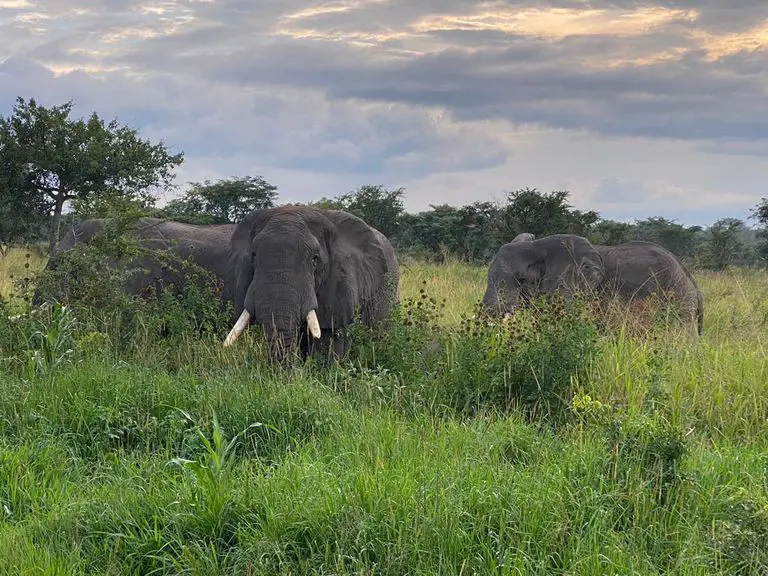
Once an Elephant Paradise
Back in the 1980s, it was estimated that Virunga was home to more than 8000 elephants. The remote wilderness was the perfect place for the giant pachyderms, which had roamed the landscape there for untold centuries. With no real rivals or predators other than man, it seemed like the forests and savanna were a safe haven for the creatures.
But in the decades that followed, civil unrest and an increasing number of guerrilla militias took hold in the DRC. Those groups funded their operations by hunting the elephants living in Virunga, killing them to harvest their tusks. The ivory was then sold on the international black market, where it still commands a premium.
Despite the best efforts of government officials, park rangers, and conservationist, the poaching went largely unchecked for many years. As a result, by 2015 it was estimated that just 500 elephants remained inside Virunga’s 3000 square-mile (7,70-sq. km) boundaries. That number feel to just 120 by the start of 2020.
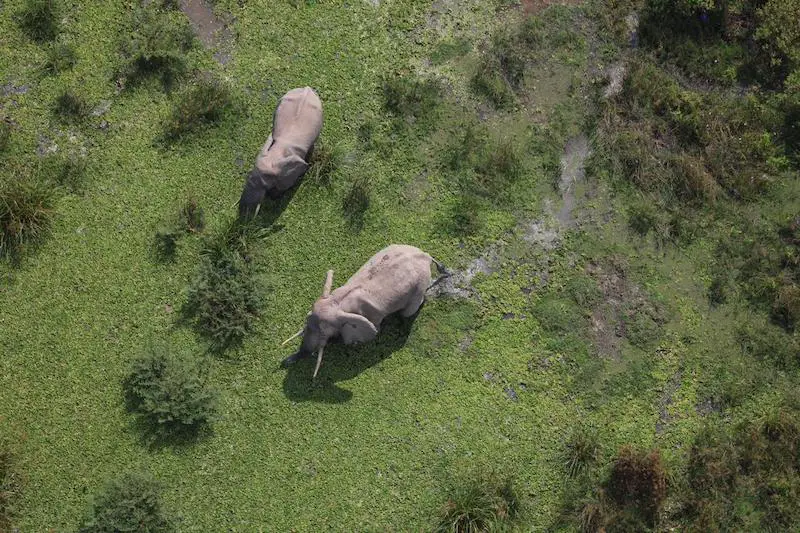
COVID Just Down Virunga National Park
As with many travel-focused destinations around the globe, Virunga was forced to close its gates as the global pandemic spread throughout the world back in March. Because no one could come to the DRC or Virunga, tourism revenue that once supported the park dried up and disappeared. This forced the government to layoff much of the staff and shutter operations admits fears that poachers would claim the last of the elephants that still wandered the park there.
In a last ditch effort to try to save the animals, DRC officials reached out to UNESCO for assistance. The United Nation’s education, science, and cultural organization heard the call and came to the rescue. Millions of dollars in aid was sent to Virunga to help formulate a plan of action.
The funds were used to erect walls around much of the park’s borders, effectively cutting off the most common routes used by poachers. To further deter illegal hunting, armed guards were hired to patrol the region too. Specially trained park rangers swept the park looking for—and removing—dangerous snares designed to trap and kill an elephant, greatly reducing the threat of a long and agonizing death. Park officials even partnered with nearby communities to offer protective services and economic assistance, which helped to eliminate the need to poach wildlife in the first place.
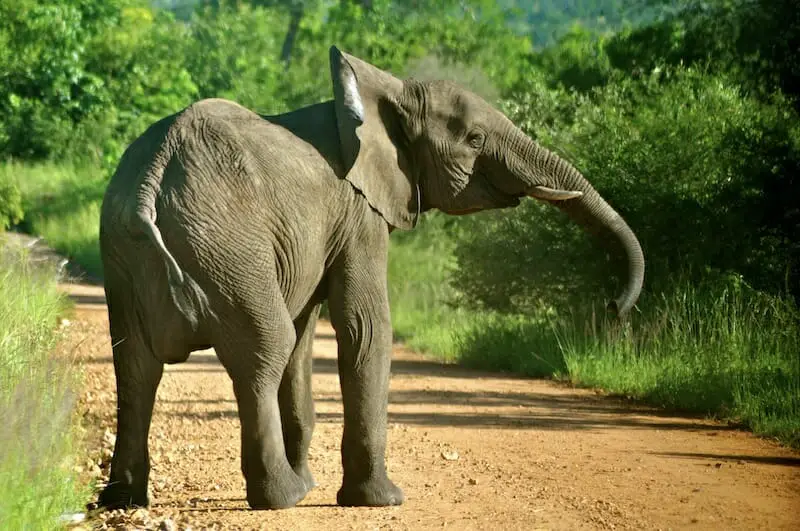
An Influx of Animals
A few months after these measures were take a curious thing happened. More than 580 elephants from neighboring Uganda wandered across the border and into Virunga. Suddenly the size of the herd had grown to fives times what it had been at the start of the year. With few visitors to the park, its roads and campsites are extremely quiet, which makes it an ideal setting for the large animals.
The return of the elephants had a surprising and immediate impact on the ecosystem in the park. Because the creatures hadn’t been seen in large numbers inside Virunga for a number of years, numerous invasive plant species had taken hold there. But using their massive legs and feet, those plants were soon trampled under, which had a cascading effect on the other animals that call the park home.
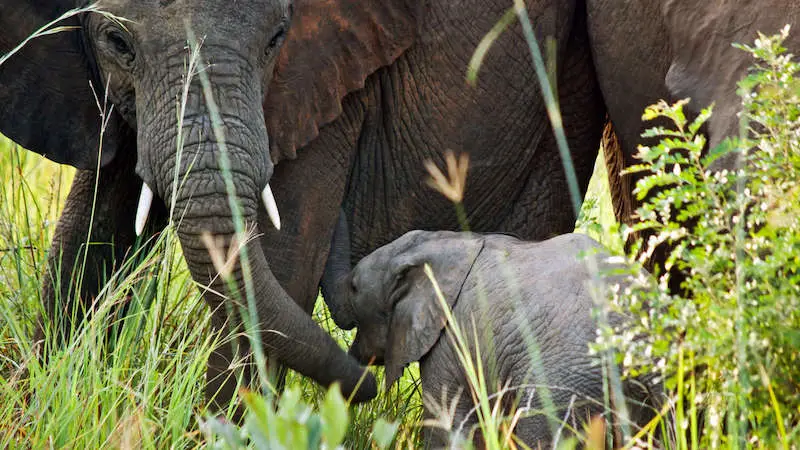
A Recovering Ecosystem
Because the invasive plant species were allowed to run wild, many indigenous flora was overrun. This caused the local food chain to be thrown completely off kilter, forcing some animals to migrate to other areas to find a proper source of sustenance.
Thanks to the return of the elephants, many of the invasive plants are now getting brought back under control. Because of this, numerous other species are starting to wander into Virunga again too, including buffalo, warthogs, and topi. More encouraging still, rangers say that they have spotted lions in the park as well. The big cats have not made an appearance there in decades.
The Future Looks Bright
Government officials in the Democratic Republic of the Congo are ecstatic with everything that they’ve seen unfold over the past few months. What had started as a last-ditch effort to protect their rapidly-dwindling elephant population has now become one of the biggest and best conservation stories in recent memory.
That said, there is still work to be done in and around Virunga. The plan is to increase the number of anti-poaching patrols and to engage more local communities in economic development. Those efforts are already underway, with plans for more protective measures coming down the line.
Still, it is impossible not to feel a sense of optimism at this story. Provided park officials can keep the poachers out of Virunga, there is good reason to expect the park to continue its stunning turn around. That’s the kind of news that we can all use in this pandemic year.
- Gear Review: The Xero Scrambler Mid is an Ultralight Hiking Shoe for Spring - March 1, 2023
- Gear Review: Yeti Roadie 48 Wheeled Cooler - August 18, 2022
- Kristin Harila Continues Pursuit of 8000-Meter Speed Record - August 16, 2022
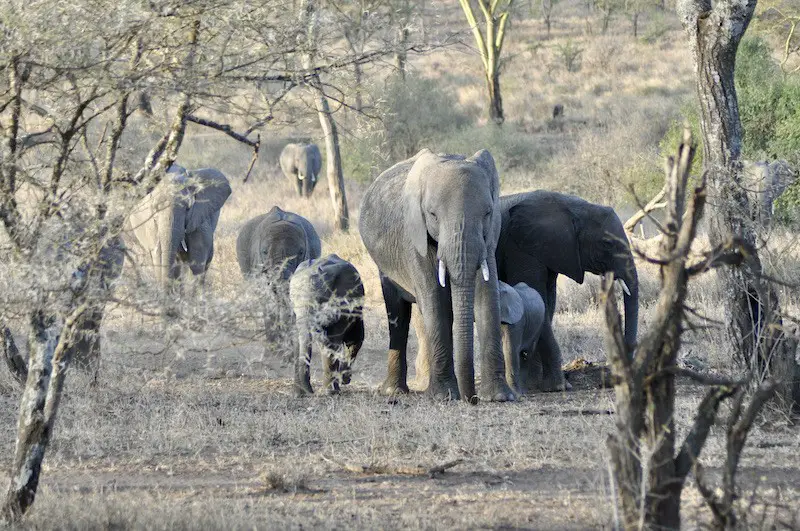
FANTASTIC NEWS! Thank you to all involved in the task of preserving and increasing our precious wildlife may they flourish and grow in numbers ????????????????
wow what an amazing story, we definitely need stories like this right now.
The funding comes from the European Union. The programme also aims to support sustainable fishing on Lake Edward, participatory demarcation and fence building, ranger’s work and restauration of the Rwindi hotel. It is now complemented by a transboundary programme with Queen Elisabeth that aims to help the rangers of DRC & Uganda have the means to cooperate but also bring back the wild dog but these funds cannot replace the loss in tourism revenue!
Fantastic news a shows how important elephants are to a balanced ecosystem long may this continue.